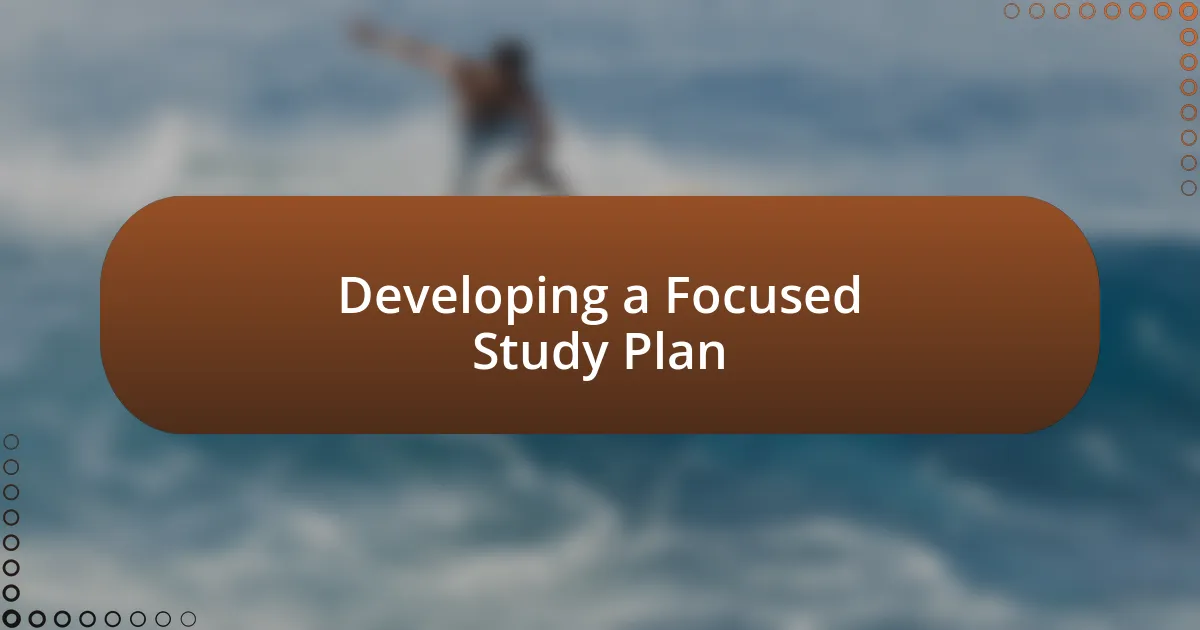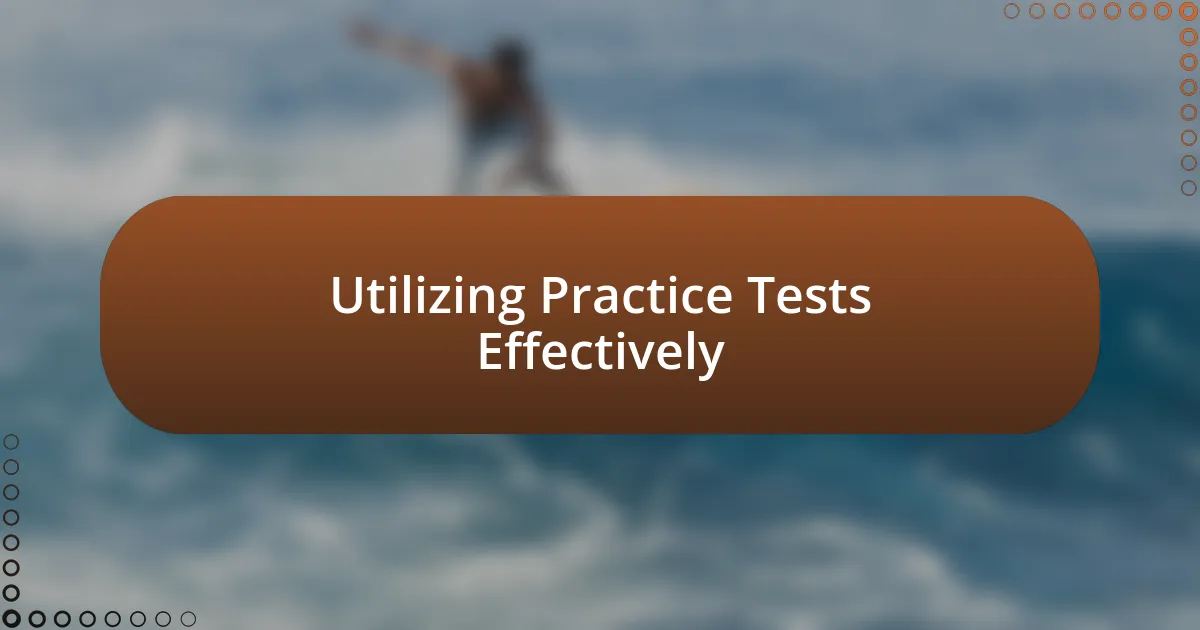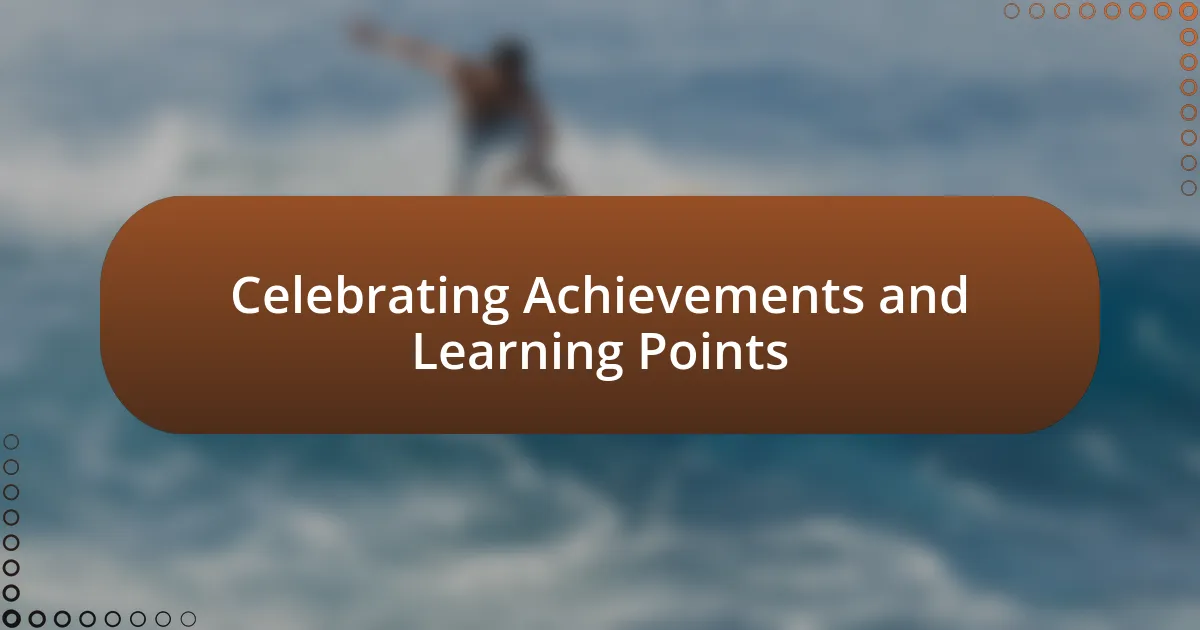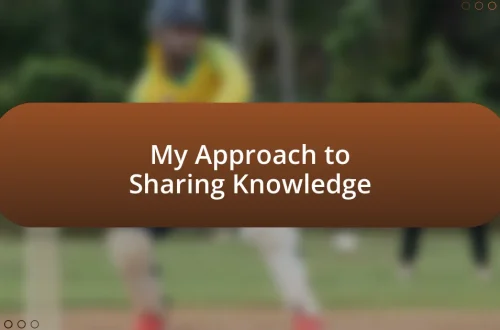
What I Learned About Scoring High
Key takeaways:
- Techniques like the Pomodoro Technique and active recall significantly improve focus and information retention.
- Creating a focused study plan and setting clear goals facilitate effective time management and reduce exam stress.
- Utilizing practice tests and spaced repetition enhances confidence and reinforces learning through structured assessment.
- Tracking progress and reflecting on study strategies enable adaptability and can lead to improved performance over time.

Identifying Key Study Techniques
When I was preparing for my final exams, I stumbled upon the Pomodoro Technique, which involved studying intensely for 25 minutes followed by a 5-minute break. It felt like a game-changer! I realized that having those short intervals helped me maintain focus and actually retained more information. Have you ever experienced that rush when you realize something finally clicks?
Another technique that served me well was active recall. Instead of passively reading my notes, I would challenge myself to retrieve information without looking. I can still remember the frustration and determination I felt as I struggled to remember key concepts; however, that struggle is what solidified the material in my mind. Why not give this a try? You might find it transformative.
Highlighting and summarizing content was also essential to my study strategy. Early on, I found myself overwhelmed by choppy notes filled with highlights galore. It was only when I started distilling those highlights into concise summaries that I felt in control of my learning process. Have you considered how distilling information helps in processing and retaining knowledge better? It’s truly powerful.

Developing a Focused Study Plan
Creating a focused study plan transformed my approach to learning. It allowed me to allocate my time effectively, reducing stress and avoiding those last-minute cram sessions. In my experience, breaking down subjects into manageable chunks made everything feel less daunting, almost like piecing together a puzzle.
Here’s how you can develop a focused study plan:
- Identify specific topics you need to cover.
- Set clear, attainable goals for each study session.
- Allocate time blocks for each subject based on your comfort level.
- Include regular breaks to recharge your mind.
- Regularly assess your progress and adjust your plan as needed.
In my journey, I found that incorporating personal goals—like aiming for a certain grade—provided extra motivation. The sense of accomplishment I had after completing a study session was exhilarating. It felt rewarding to see my efforts translate into tangible progress, keeping me engaged throughout the learning process.

Utilizing Practice Tests Effectively
Effectively utilizing practice tests was a game-changer for me. During my preparation for exams, I always found that simulating the actual test environment helped reduce anxiety and boosted my confidence. I vividly remember taking my first practice test and feeling overwhelmed by the time constraints. However, with each test I tackled, I learned to manage my time better, which directly improved my performance.
Another vital aspect is reviewing my practice tests. Initially, I would rush through finishing them, but I soon discovered the importance of analyzing my results. I would spend time examining the questions I got wrong, understanding why the correct answers were right, and identifying patterns in my mistakes. This reflection process not only improved my knowledge but also helped me develop strategies to tackle similar questions in the future.
Also, I began to incorporate spaced repetition into my practice test regimen. Instead of cramming all at once, I scheduled practice tests throughout my study timeline, allowing myself to revisit material periodically. This method helped reinforce my learning, making it easier to recall information during the actual exam.
| Practice Test Strategy | Description |
|---|---|
| Simulate Test Conditions | Take practice tests under timed conditions to mimic the actual exam experience. |
| Analyze Results | Review your answers, particularly focusing on mistakes, to identify knowledge gaps. |
| Spaced Repetition | Schedule practice tests at intervals to reinforce learning and improve retention. |

Managing Test Anxiety Successfully
Managing test anxiety was something I struggled with early in my academic journey. I can recall sitting before a test, feeling my heart race and palms sweat as thoughts of failure swirled in my mind. It was a turning point when I learned that deep breathing exercises could be a simple yet effective tool to calm those nerves. By taking a few moments to breathe deeply before starting my exams, I significantly cleared my mind and focused better on the questions at hand.
Additionally, I found that visualization played a key role in managing my anxiety. Before an important test, I would close my eyes and picture myself confidently answering each question, feeling a sense of accomplishment. This mental imagery not only created a positive mindset but also reduced my fear of the unknown. Has anyone else tried this? It might sound a bit “out there,” but in my experience, it transformed my pre-test routine.
Lastly, I realized the power of routine when it came to managing anxiety. Establishing a consistent study schedule made a difference in how prepared I felt. On the eve of the exam, I would stick to familiar habits, like reviewing my notes and getting a good night’s sleep. This approach helped me feel in control and ready to tackle whatever challenges the test might bring. Isn’t it comforting to know that a little preparation can make such a big impact?

Tracking Progress and Adjusting Strategies
Tracking my progress has been one of the most eye-opening experiences in my learning journey. I remember creating a simple chart to monitor my study habits and test scores. Observing my performance over time allowed me to identify patterns, and I discovered certain subjects needed more attention than others. Have you ever visualized your learning in such a way? It can really illuminate areas for improvement.
As I dove deeper into my studies, adjusting my strategies became essential. For instance, when I noticed my grades in math were slipping, I started dedicating extra time to practice problems and sought help from a tutor. This adaptability not only kept me on track but also built my confidence as I saw tangible results from my efforts. Isn’t it fascinating how small shifts in approach can lead to significant gains?
I’ve also found that reflecting on my study methods after each exam has been invaluable. After one particularly challenging biology test, I sat down to analyze what strategies worked and what didn’t. This reflection guided me to incorporate more active learning techniques, like teaching the material to someone else. It’s amazing how tracking and adjusting allow for a more personalized path to success. Do you take time to reflect on your own strategies? It can truly change the game.

Celebrating Achievements and Learning Points
Celebrating achievements, no matter how small, has always been a pivotal part of my learning process. I recall the exhilaration I felt after acing a difficult exam; that moment wasn’t just about the grade but also about the hard work I’d put in. Have you ever paused to truly embrace your accomplishments? It can propel you forward, reminding you of what you’re capable of achieving.
On the other hand, each setback taught me lessons that were equally worth celebrating. During a particularly tough semester, I struggled with language arts and faced a few disappointing grades. Instead of letting that discourage me, I acknowledged the learning points—like the need for better time management—and turned it into motivation. I firmly believe every mistake is a stepping stone; what do you think?
I often share my milestones with friends and family, and I’ve found that this collective acknowledgment amplifies the joy of achievement. For example, when I successfully completed a challenging project, celebrating it with my study group not only marked the completion but reinforced our bond and learning journey together. It’s interesting how shared celebrations can ignite a sense of camaraderie and boost our motivation, don’t you agree?




